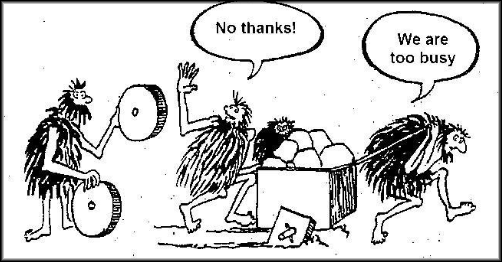From “being busy” to doing GREAT work in 2 steps
By Nick Hastings – Director for Business Development & Partnerships, hammerjack
Originally published on LinkedIn
You need to let go and engage with experts
I’m not sure when it happened, or if it’s the way it’s always been, but it seems now more than ever “being busy” has become a perceived business synonym for success.
Like some corporate drug, business and the key people in them are having their days filled with connected urgency and reactionary work. There are many internal and external factors that can contribute to this, such as lack of process, single points of failure, (dis)ability to scale, the mis-allocation of resources and skill set or simply trying to take on too much, all contributing to the volume of busy and keeping it that way.
Being busy doesn’t mean you’re not doing good work; the question is how do you do great work?
Every year between May and July in particular, the months pass by as the routine of being busy and doing good work continues. Lots of activity, targets being hit, and offices running as effectively as they can. However the issue remains: activity doesn’t necessarily make you productive and being effectively busy doesn’t create business efficiency.
1. Identify you’re busy doing good work.
There many ways you can easily identify professional busyness; however, some of the easiest ways I’ve found are;
Rising operating costs: More resources with the appearance of work. However, results aren’t tracking against those costs.
Stalled innovation: Highly skilled resources doing work that bogs them down from real value add tasks.
Focus on non-core functions: Your business activity seems to constantly be held hostage by resources and functions such as back office or administration.
2. Commit to doing great work.
Firstly, you need to identify the areas in your role or business that define great work. For most businesses, great work means getting out of the processing, the data entry and the non-critical tasks that are filling the days. Great work usually involves focusing contribution effort to the WHY, the customer or the mission.
Committing, however, is more than just knowing. Committing means letting go of tasks and functions in your business that are contributing to busy and maybe engaging an expert to help. As we continue to globalize business and the traditional barriers of outsourcing are reduced, you now have the ability to commit to making a change toward doing great work. By leveraging the right outsourcing partner, you should see:
Increased efficiency
Free time to focus on core areas
Savings on overheads and operating costs
Access to outside skilled resources
Advantages of time zones
Gains of faster, higher quality outcomes
If you’re not quite ready to commit there are some simple things you can do internally to help run your small business like a BPO. It’s about being able to get the right people in the right place, focused on the right tasks so you can do great work.

